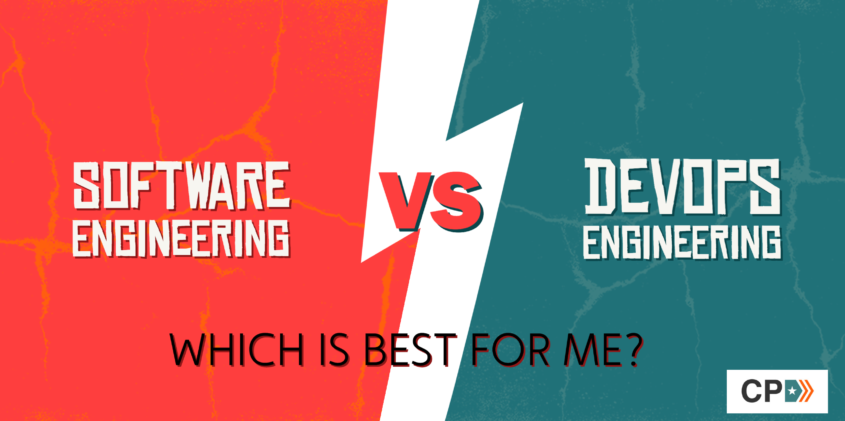Software Engineering or DevOps Engineering
As you may know, Code Platoon recently launched its DevOps Engineering program, the first new program since we began with our Full-stack Software Engineering Bootcamp.
But along with a new program and curriculum comes new questions about which one of these to choose if you want to get started in the tech world. What skills are important for each?? How are the disciplines different? And what the heck is DevOps, anyway??
Both a DevOps developer and a Full-Stack developer are highly sophisticated experts who work towards the same goal – delivering software applications on time with zero bugs. The philosophies and methods that they choose to achieve the goal are what set them apart from each other
With that, an analogy is helpful. Imagine the world of military tech procurement.
Let’s say you want to develop a new tank (because tanks are pretty cool, right?). There are several levels at which this process begins.
First, individuals propose a need for a new tank and why that is the case. The old tank is too slow, not well-armed enough, not reliable enough, etc. So, a new model is proposed to address these shortcomings.
At the initial levels, engineers are needed to understand material construction and recognize how to be creative. Where can more rockets fit?
This is where engineering and artistry come together. It is not creating something entirely new necessarily, but rather using existing concepts in a new, functionally-superior way.
 But if you want this project to be done both well and efficiently, then you need what is called a feedback loop. It will not work to have a project initiator say, “I want this thing to do X” and then have engineers design it perfectly on the first try. You need the initial plan, feedback from engineers to inform that plan, response from the planner, and constant tweaks in that manner that form the cycle of feedback, planning, and implementation.
But if you want this project to be done both well and efficiently, then you need what is called a feedback loop. It will not work to have a project initiator say, “I want this thing to do X” and then have engineers design it perfectly on the first try. You need the initial plan, feedback from engineers to inform that plan, response from the planner, and constant tweaks in that manner that form the cycle of feedback, planning, and implementation.
Think of this as where both software engineers and DevOps specialists come in. The software engineer has to understand the needs of the owner and make sure the tank functions operationally. A DevOps engineer has to then ensure that it’s actually running and continues running in its environment.
A DevOps engineer would work with tank crews in a more developed stage of the process to ensure that the tank is running at an optimal level for the end-user. This is not to say that a software engineer would not have input at this level – they certainly would, as development and maintenance are continual.
In the software world, that feedback loop is never closed. As one knowledgeable person put it, “if the app [or website] is worth its salt, it will be continually changed over time.”
Software engineers are specialists in both the front-end and back-end. They are proficient in both back-end and front-end languages and have detailed knowledge of frameworks, server, and network and hosting environments too.
DevOps engineers are basically IT professionals with expertise in coding, scripting, and managing the overall operation of product development and deployment. These engineers transform the traditional ways of software development, operations teams, and testing into a holistic environment for superior quality product development.
DevOps engineers combine their hands-on experience and in-depth knowledge in software development with core business analytics expertise to offer innovative business solutions.
All of this leads to a more fundamental question from the perspective of someone coming to Code Platoon: which one is right for you?
This depends on some factors that can only be answered by the individual and are by no means consistent across-the-board. We have all seen examples of people who, at first glance, are very similar, but when we dig a little deeper, we recognize some fundamental differences that were not immediately apparent.
Are you a more creative, philosophical individual who gravitates towards the unique application of language and its nuances? Or are you a more structured type who enjoys the processes of keeping a developed project running at an optimal level?
Again, these are broad strokes from a 30,000-foot view, so take all of this into account, but don’t insist on any of it being hard-and-fast rules. The overlap is enough that an understanding of each area will be of great help to either path, and learning one may ultimately lead you to another.
But understanding yourself is a key element in any journey, especially when it comes to big choices about which path to choose. That is exactly why I am here at Code Platoon, so don’t hesitate to reach out and ask questions about exactly this. I am happy to help.
Subscribe To Our Newsletter
Join our mailing list to receive the latest news and updates from our team.
Thank you for subscribing to our email list!

